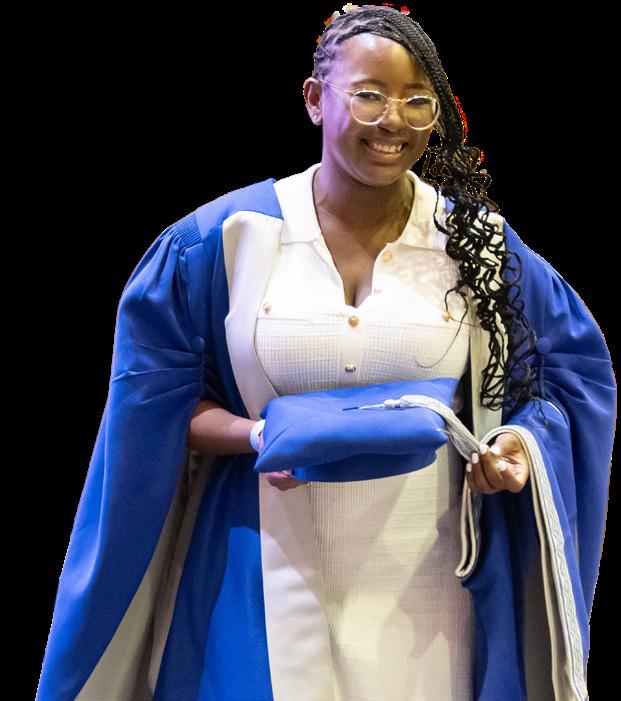
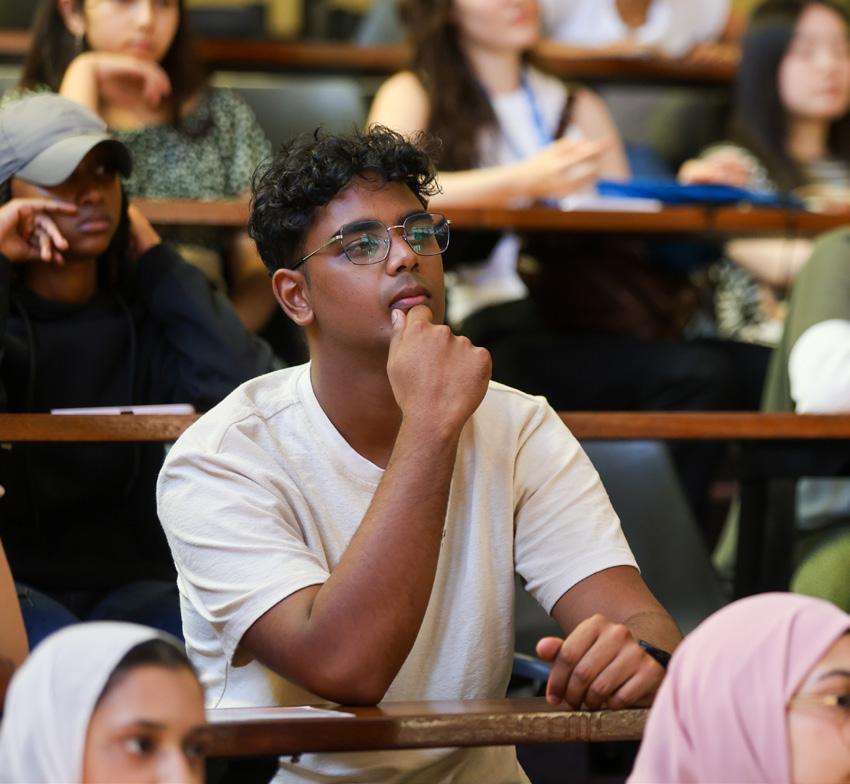
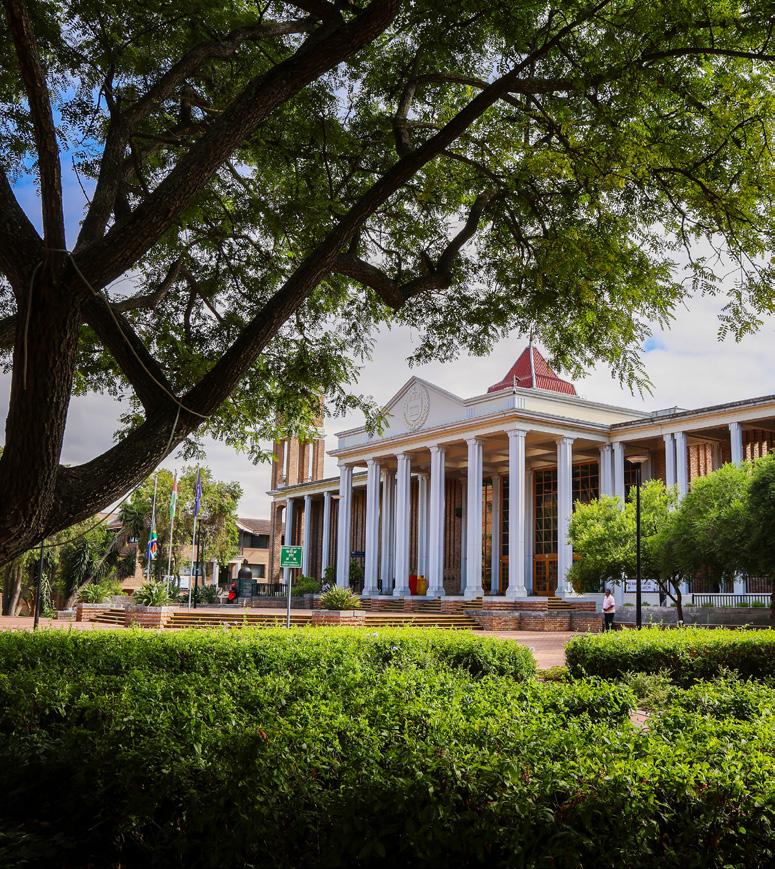




The information contained in this booklet is subject to change and may not be comprehensive, complete, or up to date. The University reserves the right to modify or withdraw any information, programmes or courses at any time without notice.
While every effort has been made to ensure the accuracy of the information, the University does not warrant or guarantee its accuracy, completeness or fitness for any particular purpose.
The University shall not be liable for any damages, losses or expenses arising from or related to the use of this information including but not limited to damages for loss of profits, business interruption or other indirect or consequential damages.
By accessing and using this information, you acknowledge that you have read, understood and agreed to the terms and conditions of this disclaimer.
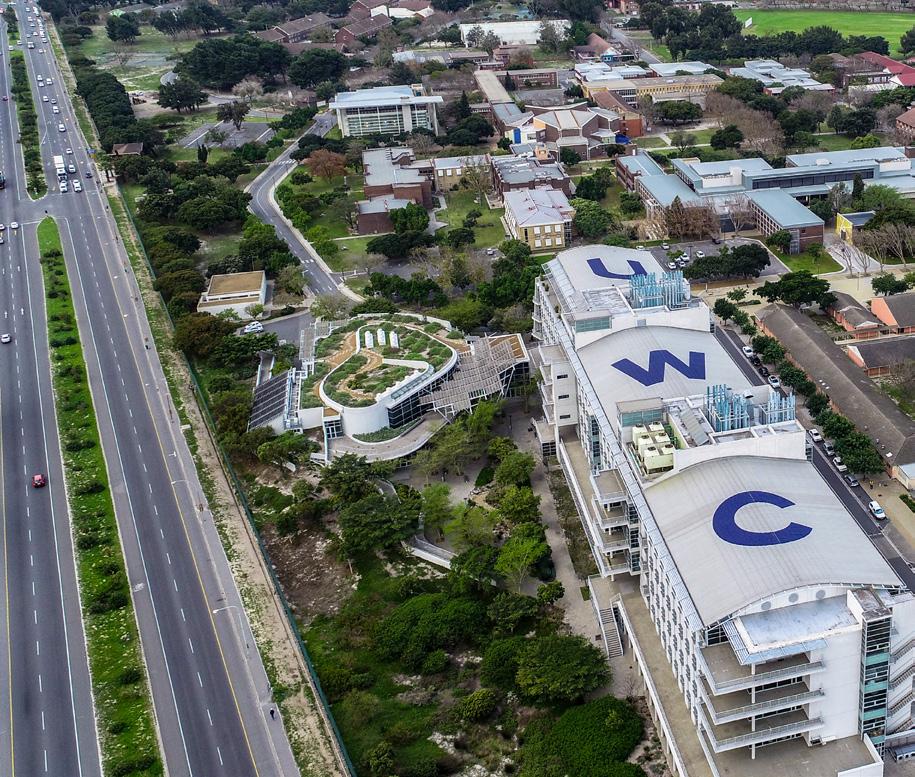
“Over the decades, UWC has evolved into a globally recognised research-led institution that advances knowledge with realworld impact.”


“Beyond academia, our vibrant postgraduate community provides opportunities for networking, interdisciplinary collaboration, and personal development.”
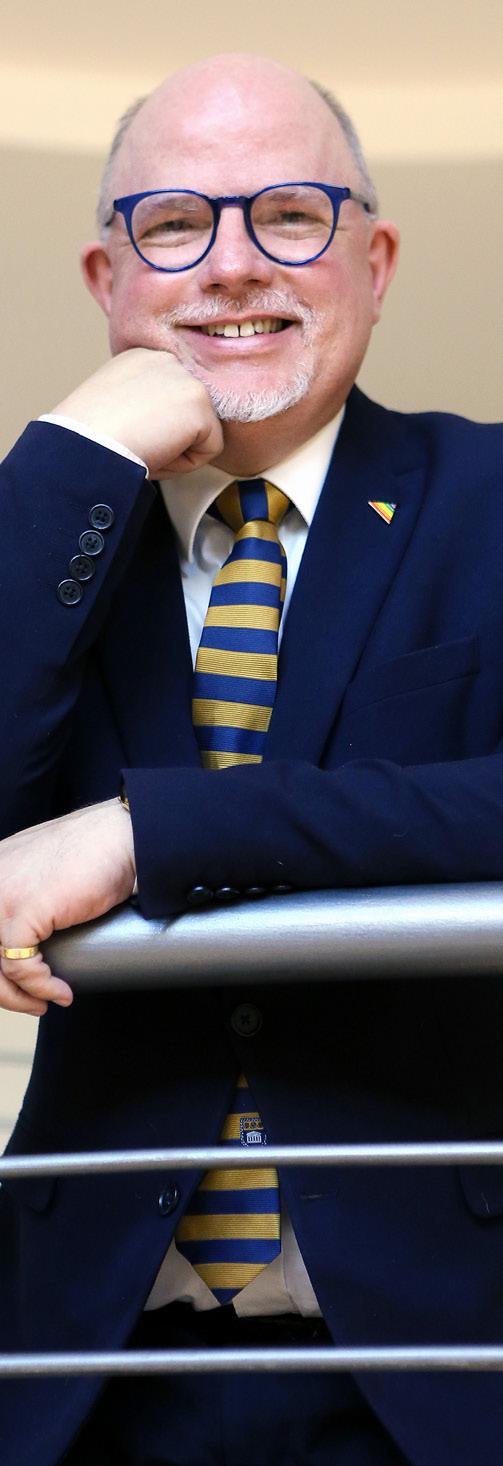
UWC’s history is rooted in activism, and that legacy continues to influence the way we think, teach, and engage with the world. Through our Vision 2035, we are strengthening the integration of research and innovation, teaching and learning, and community engagement by leveraging local and international partnerships. Our postgraduate students are central to this mission.
At UWC, you will engage with leading scholars, worldclass facilities, and interdisciplinary collaborations that broaden your intellectual horizons. Our diverse network of stakeholders reflects our focus on research that aligns with global priorities, such as the United Nations Sustainable Development Goals (UN SDGs). Embedding the SDGs into our postgraduate programmes creates a research environment that is both globally relevant and locally responsive.
Postgraduate study contributes to intellectual and personal growth, equipping scholars with the tools to navigate a complex world. This exemplifies the work of Wally Morrow who emphasised the importance of critical engagement in education. Similarly, bell hooks advocates for the role of education as a means of emancipation, promoting learning environments conducive to critical thinking and inclusivity.
At UWC, we provide our postgraduate students with the resources, mentorship, and an intellectually stimulating environment. We are excited to welcome you to UWC!
Professor Robert J. Balfour Rector and Vice-Chancellor (UWC)
UWC is a dynamic and thriving community of researchers and innovators. We have firmly established ourselves as a research-led institution in South Africa. Our strong commitment to academic excellence, combined with a focus on research-driven innovation, continues to position UWC as the institution of choice for postgraduate studies, both within South Africa and beyond.
What truly sets UWC apart is our unwavering dedication to fostering an enabling research environment that nurtures and supports both established scholars and emerging researchers. We are proud to offer a wide range of resources, infrastructure, and professional development opportunities that help our researchers reach their full potential. At UWC, we strive to create an atmosphere where innovative ideas flourish, and researchers can contribute meaningfully to their field.
One of our key strengths is our focus on strategic partnerships, which open doors to collaborative opportunities in South Africa and internationally. By working together across disciplines, institutions, and borders, we can tackle global challenges and create solutions that have a lasting impact on society. Our postgraduate students enjoy a comprehensive support structure designed to enhance their academic and professional journeys. We are committed to ensuring our students have the necessary resources, guidance, and opportunities to excel.
We are excited to invite you to be part of this transformative journey. Let’s work together and shape the future through impactful research and innovation.

“At UWC, we strive to create an atmosphere where innovative ideas flourish, and researchers can contribute meaningfully to their field.”
Professor José Frantz
Deputy Vice-Chancellor: Research and Innovation (UWC)
A well-capacitated academic workforce boasting PhDs is one of the key drivers of research productivity and competition in a global knowledge economy. However, research suggests that the average percentage of South Africa’s academics with a doctorate remains on a low trajectory and has not increased significantly over years.
The relationship between having a PhD and being active and productive in research is explicit and comprehensively documented in studies on higher education. In fact, completion of a PhD not only creates the opportunity for emerging scholars to publish, but this achievement also puts them in a state of readiness to supervise at postgraduate levels.
As an aspiring research-led university, UWC does not take this ambition for granted. Hence, we have made concerted efforts to support postgraduate students as well as junior staff to obtain their PhDs in record time. An important highlight in which we take pride is the graduation of a large number of valuable PhD students from coordinated and meticulously designed academic programmes under the auspices of the University’s seven faculties.
Our postgraduate students are employable graduates, with some holding leadership positions as academics and others as senior managers and professionals in both the public and private sectors. Our impressive network of alumni is testimony to this fact. If your ambition is to grow in a place of quality, explore rich opportunities and make a meaningful contribution to society, I invite you to enrol in UWC’s postgraduate studies.

“Having a postgraduate qualification will provide you with better and more appealing employment opportunities.”
Professor Monwabisi Ralarala Deputy Vice-Chancellor: Academic (UWC)
The transformative power of higher education, especially in the South African context, cannot be overstated. As we continue to remove structural and systemic barriers to address the inequalities of the past, access to higher education has been recognised as the most effective pathway to improving the quality of life, not just for families, but for communities, too. This accounts for the extremely high level of demand for access to higher education institutions.
It has become a contested space, and for many of those who do enter it, often challenging. However, once they have found their niche, they thrive. Those who choose to continue with their studies into postgraduate programmes can become more specialised and increase their potential job opportunities.
The postgraduate pathway (after the three-year bachelor’s degree) begins with an honours degree, then a master’s degree and ultimately a doctoral degree. While it sounds daunting and requires many years of studying and conducting research, the end result is rewarding. Having a postgraduate qualification improves your career options and assures respect for you as a specialist in a particular area, and enhanced quality of life. You can contribute valuably to policy development, debates, discussions, and general transformation in society.
Postgraduate qualifications add to a deep sense of personal growth and fulfilment, as well as significantly contribute to your professional development. Your time management, presentation, research and critical thinking skills all improve, and will aid you in the workplace in ways that make you stand out. Your world
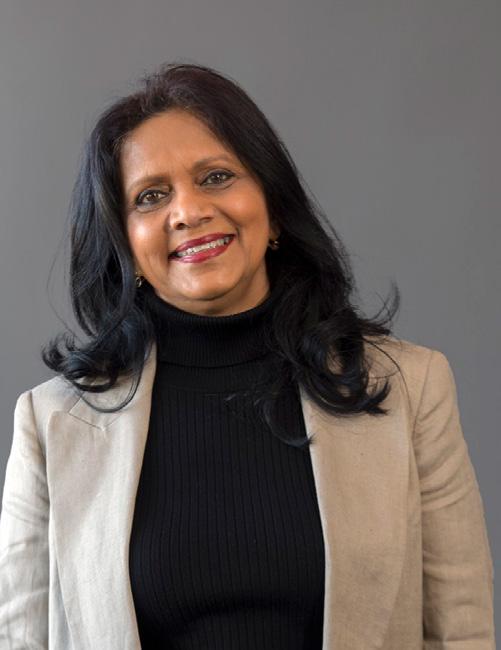
views and perspectives are transformed, and you can create shifts in thinking from ordinary to extraordinary.
Don’t settle for ordinary – become extraordinary!
Dr Nita Lawton-Misra Registrar (UWC)
The University of the Western Cape (UWC) is a research-led, learning and teaching university with a legacy of social justice, community engagement and graduate employability.
Founded in 1960, the university has grown and flourished over the past decades and is regarded as one of the top universities in Africa. It has placed in the top 800 in the global Times Higher Education (THE) rankings every year since 2013 and has consistently been rated by THE as one of South Africa’s top eight universities.
In 2024, UWC was recognised in the latest World University Rankings for International Students, securing a place in the top 12% of institutions globally. For this ranking, over 8 530 universities were evaluated. It shows that UWC’’s commitment to academic excellence also has growing appeal among international scholars.
UWC is consistently rated one of SA’s top 8 universities by Times Higher Education


For postgraduate students, the support and dynamic environment at UWC underscores the academic excellence offered at the institution.
The University is deeply committed to the National Research Foundation’s (NRF) aspiration to develop and enhance the research stature of early and emerging researchers, prioritising black, female and people with disabilities as part of its transformation agenda. It is one of the foundation’s endeavours to redress historical imbalances in the South African researcher cohort. This aligns with UWC’s research strategy, which aims to support early career researchers through our programmes.
When Dr Omowunmi Isafiade won the Research Excellence Award from the NRF for Early Career/ Emerging Researchers category in 2023, she acknowledged the enabling environment at UWC and her entire support system for her research success.
It shows how the University of the Western Cape is succeeding in providing excellence in teaching, learning and research, and nurturing the cultural diversity of South Africa.
vision:
Attuned to South Africa’s need to make the best use of its talent pool and to be globally competitive, UWC is known to be a vibrant intellectual space to engage with matters of real significance at the highest levels of competence, and it is widely recognised for this role.
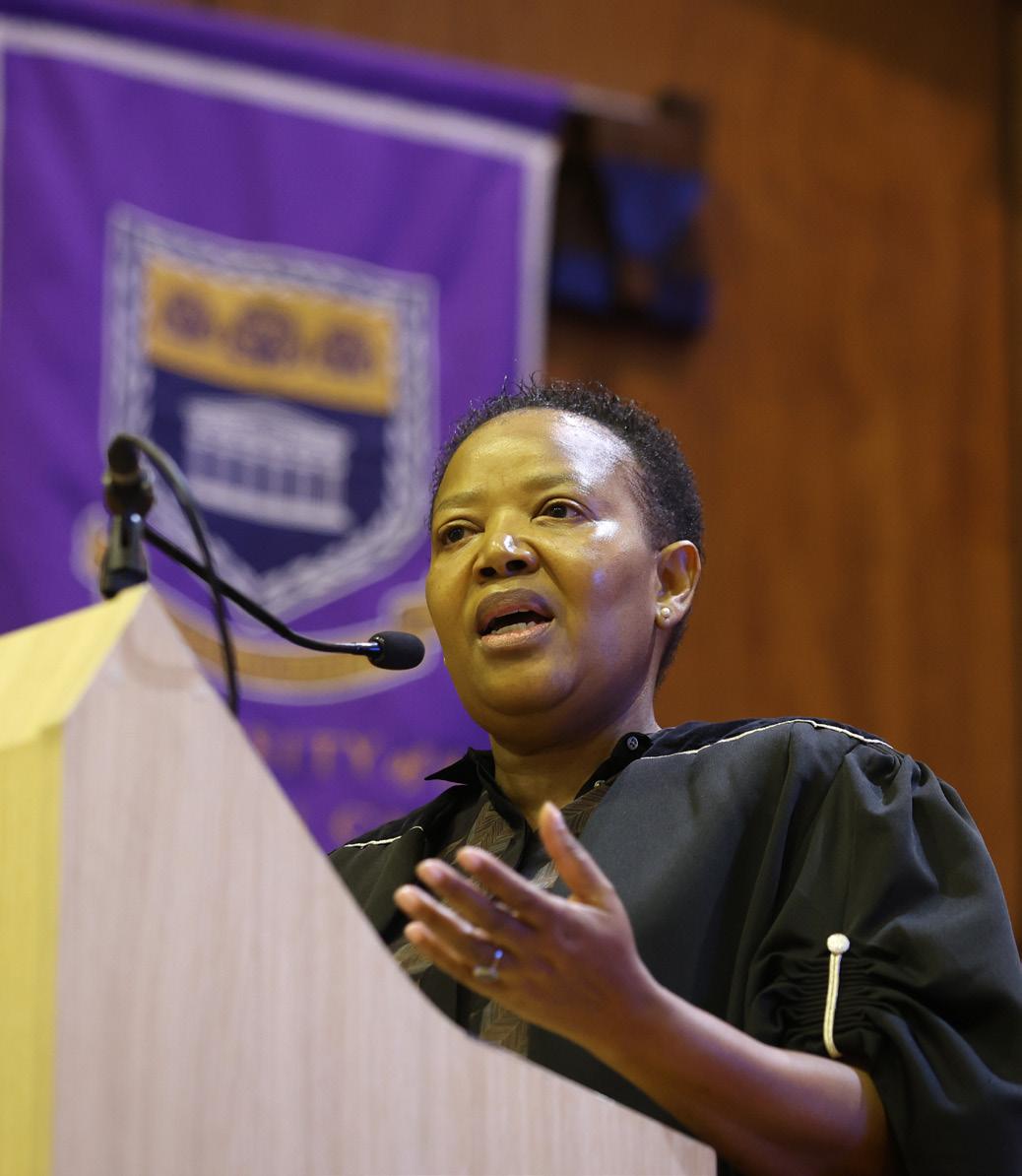
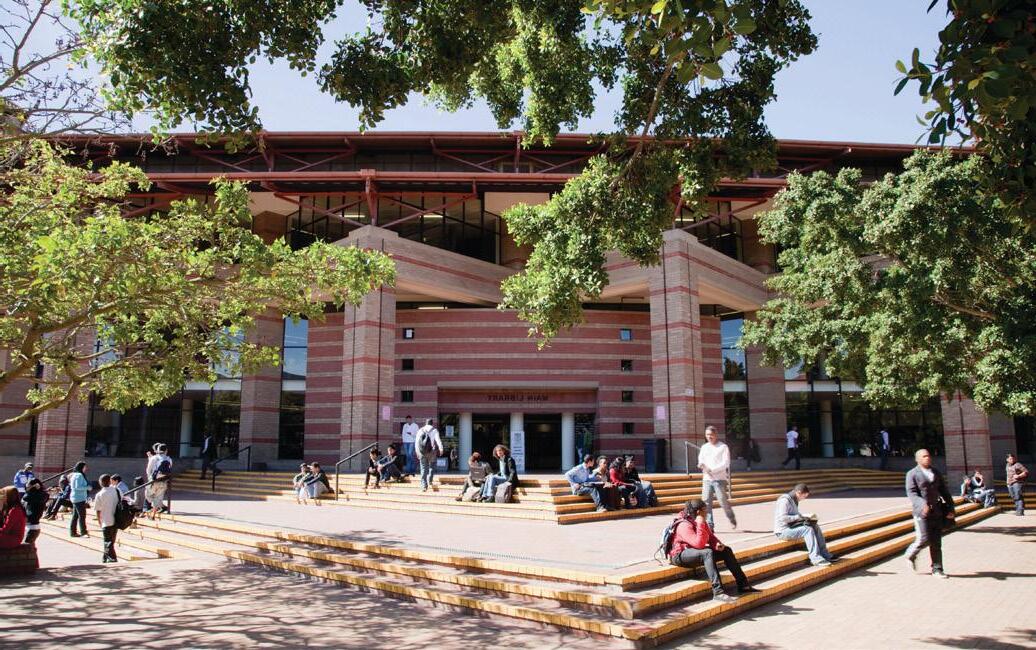
We recognise that this choice involves a considerable investment of time, effort, and financial resources. It’s a step that should be carefully considered, with clear motivations in mind. For many students, advancing their knowledge in a specialised field serves as the primary reason for pursuing postgraduate education. In certain industries, postgraduate qualifications have become essential due to evolving professional standards.
Career transitions also drive many individuals toward postgraduate studies. Whether you are contemplating a shift to a new profession or seeking to expand your expertise in your current field, a postgraduate qualification can provide the necessary skills and credentials. Specialised programmes, such as a one-year postgraduate diploma or certificate, can further support your professional growth by offering targeted knowledge and practical experience.
The University of the Western Cape (UWC) is renowned for its research excellence, high academic standards, and global rankings, all supported by a vibrant and inclusive university community. Research is fundamental to advancing human knowledge and addressing society’s most pressing challenges. At UWC, we are committed to finding solutions through innovative and impactful research.
Pursuing postgraduate studies at UWC will set you apart by providing exceptional academic support, professional development opportunities, and access to world-class resources. Join us in shaping the future through research and discovery.
Honours and master’s degrees are increasingly considered the new benchmark for career advancement.
DIPLOMA EXCHANGE NON-DEGREE READMISSION TRANSFER
POST DOC SPECIALISED START
SELECTION
REGISTRATION FHD*
MASTER’S / DOCTORATE GRADUATES APPLICATION SHD**
MODULES PASSED 1 YR
CONTACT SUPERVISOR
TOPIC APPROVED LIBRARY HOLDINGS
SUBMITS FOR EXAMINATION
EXAMINERS APPROVED
INTENTION TO SUBMIT CREATE RESEARCH TOPIC
* Faculty Higher Degrees Committee (FHDC)
** Senate Higher Degrees Committee (SHDC)
Honours research essay does not need to undergo this lifecycle, but the Hons students are still assigned a supervisor in the Hons research essay module
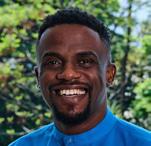
“I want to create opportunities that enable young Africans to realise their full potential.”
Dr Kenechukwu Ikebuaku
Distinguished scholar
Dr Kenechukwu Ikebuaku is a notable development scholar, educator, and entrepreneur with over a decade of experience in teaching, mentoring, business, and youth development. He earned all his academic qualifications – undergraduate to doctorate – at the University of the Western Cape (UWC), embodying the institution’s spirit of excellence and transformation. His academic journey has shaped his research interests, which focus on youth education, digital innovation, and entrepreneurship.
As the founder and CEO of Mozisha, a pioneering technology workforce development firm, Dr Ikebuaku is dedicated to cultivating Africa’s next generation of skilled professionals. Mozisha empowers young people with industry-relevant skills through an innovative practice-based training model that combines immersive learning, capstone projects, mentorship, and apprenticeship programmes. By bridging the skills gap and connecting trained professionals with global enterprises, the initiative contributes meaningfully to tackling youth unemployment in Africa. Beyond his entrepreneurial ventures, Dr Ikebuaku serves
as a PhD supervisor at the University of Lusaka, mentoring emerging scholars and professionals. He is also an editorial board member of the Journal of Entrepreneurship in Emerging Economies and plays a key role in selecting recipients for the prestigious Mandela Rhodes Scholarship.
Driven by a deep commitment to education and empowerment, Dr Ikebuaku is dedicated to fostering innovation and entrepreneurship. He has cemented his reputation as a leading advocate for youth development on the continent.
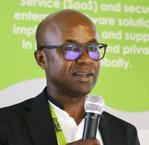
“UWC provided me with the environment to explore my business and leadership skills.”
From UWC postgraduate student to industry leader
Thando Mjebeza is the CEO of Zimele Technologies, a B-BBEE Level 1 company specialising in software as a service (SaaS) and secure enterprise software solutions, offering implementation and support services to both public and private sectors locally and internationally. Thando completed a MCom in Information Management in 2002, having also done his undergraduate and two honours degrees at UWC prior to that. “UWC provided me with the critical thinking skills, leadership attributes and industry connections that propelled my career. The lecturing staff are great and have the ability to identify and nurture talent.”
As the CEO, Thando has played a pivotal role in driving strategic innovation and new business development, successfully navigating the company through the ever-evolving IT landscape. Under his leadership, the company has created a culture of excellence, reflected in its robust strategies, commitment to personal
development, innovation, and strong business execution practices. Thando’s success is a testament to the power of postgraduate education in elevating careers and shaping industries. He encourages aspiring postgraduate students to choose UWC as a platform for growth, research, and leadership.

“I want to inspire and empower others through my story.”
Dynamic speaker, poet, and leadership coach
Lynn Hill is an award-winning inspirational speaker, author, poet, mental health practitioner, leadership & executive leadership coach & humanitarian. A proud alumna of the University of the Western Cape (UWC), she has become an influential voice in the fields of GBV, leadership development, personal branding, diversity management & mentorship. She holds an honours degree in Clinical Psychology from UWC.
With over 30 years of experience ranging from education to financial services and the NGO sector, Lynn has held positions as educator, recruitment & selection practitioner & psychometrist, human resources development practitioner, consultant and CEO of Limitless by Lynn Hill. She is an honorary ambassador of the Talk Love Africa Foundation and Global Champion of SHE COUNTS, an initiative empowering African teenage girls. Lynn’s most noteworthy award has been her induction into the
This is flanked by two Lifetime Achievement Awards: Arise Africa Awards (2021) and the Christian Woman’s Entrepreneurial Network of Africa (CWENA 2024).
As a survivor of immense personal adversity, Lynn uses her experiences in her speaking and training; coaching; consulting; media engagement; poetry performances, and writing. Her first book was an Amazon international bestseller: Butterfly My Soul Got Wings, which won the AfriCAN Authors’ Award,
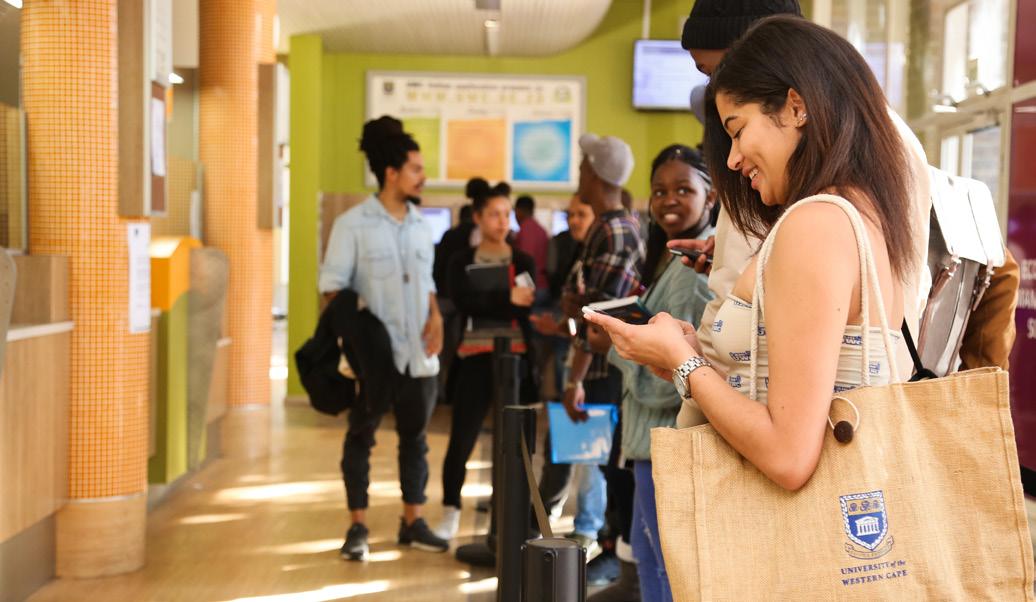
Applying for postgraduate studies at the University of the Western Cape (UWC) as an international student involves several specific requirements and procedures. Here’s a comprehensive guide to assist you:
• Degree requirements: You must possess an undergraduate degree equivalent to a South African bachelor’s degree. Each programme may have specific criteria, such as a minimum average mark in your final year. It’s essential to review the specific requirements for your chosen programme
• SAQA evaluation: International applicants are required to have their qualifications evaluated by the South African Qualifications Authority (SAQA) to determine equivalence to South African standards. It is important to start this process as early as possible. This evaluation is crucial for the recognition of your previous studies as well as for your admission. SAQA Application is done through this webpage: https://authenticationservices.saqa.org.za/
• English proficiency: If English is not your first language, you may need to provide proof of English proficiency. While specific tests like TOEFL or IELTS are commonly accepted, it’s advisable to check the particular requirements of your chosen programme
• Online application: Complete the UWC online application form and submit all required documents by the specified deadlines. For most postgraduate programmes, the application deadline is 30 September, while for the School of Government postgraduate degrees, it’s 30 August

“A postgraduate qualification is essential to becoming a fully accredited professional in many fields.”
Remember: you need a student visa!
Required documents:
Certified copy of your identification document or passport
Official academic transcripts or record of results
Certified copies of degree certificates
SAQA evaluation certificate
Short curriculum vitae (CV)
One-page letter of motivation
Short research intention (for master’s and doctoral applicants)
Ensure all documents are certified copies and meet the specific requirements of your chosen programme
Upon acceptance, you must start the process of applying for your study visa. The supporting documents you will need from the university for this are: Acceptance letter and visa Letter of Undertaking which you can request through: https://form.jotform.com/221733674615054
You must complete the following clearances before registration:
• Immigration clearance: Submit valid immigration documentation permitting study in South Africa (including medical aid cover for study visa holders) through: https://form.jotform.com/213263315163043
• Financial clearance: Request a pro-forma invoice of fees from studentaccounts@uwc.ac.za and make the required payment using the provided banking details. Email proof of payment to finance@uwc.ac.za with your student number, initials, and surname as reference
Upload proof of your SAQA evaluation certificate to your student/application portal
• Programme-specific requirements: Some programmes may have additional requirements, such as portfolios, interviews, or specific prerequisite courses. It’s essential to consult the specific faculty or department for detailed information
• Deadlines: Adhere strictly to application and document submission deadlines to ensure your application is considered
By meticulously following these guidelines and preparing your application thoroughly, you enhance your chances of securing admission to UWC’s postgraduate programmes as an international student.
The challenges of the world we live in demand more than technical solutions. They require thinkers who can engage with complexity and confront the ethical, cultural, and political challenges of our time. Our programmes, from Honours to Master’s to PhD, offer space for deep thinking, rigorous research, and meaningful conversation across disciplines. Whether your passion lies in literature or linguistics, history or gender studies, religion or politics, the Faculty provides a rich and supportive environment for your academic journey.
Our strength lies in the diversity of our disciplines and the relevance of our research. Scholars in our faculty are engaging with significant questions on justice, identity, culture, language, power, and belonging. From visual history to forensic linguistics, from media and diversity to religion and social justice, our postgraduate students are part of shaping work that matters, both in South Africa and around the world.
We are home to 13 academic departments and 4 leading research centres, providing a vibrant scholarly community committed to socially responsive and transformative research. Our postgraduate training also prepares graduates for a wide range of careers: in education, NGOs, government, the cultural and creative sectors, publishing, journalism, and policy. Across these fields, the ability to think critically and communicate clearly is essential.
What distinguishes our Faculty is not only what we research and supervise, but how we do so: through a commitment to intellectual freedom and social responsibility. If you are seeking to ask complex questions, challenge received wisdoms, and shape more just futures, this is the place to begin.

Professor Sarojini Nadar
Acting Dean of the Faculty of Arts and Humanities (UWC)
“Study where critical thought meets creative imagination.”
Postgraduate qualifications
PGDip (Language Practice)
PGDip (Library and Information Studies)
Honours
Streams
(Part time and full time)
(BA Hons) Afrikaans and Nederlands
(BA Hons) Anthropology
(BA Hons) Arabic
(BA Hons) English
(BA Hons) Ethics
(BA Hons) French
(BA Hons) Geography and Environment Science
(BA Hons) German
(BA Hons) History
(BA Hons) Linguistics
(BA Hons) Philosophy
(BA Hons) Theological Studies
(BA Hons) Sociology
(BA Hons) Women and Gender Studies
(BA Hons) IsiXhosa

MA (Afrikaans and Nederlands) –structured/thesis
MA (Anthropology) – structured/thesis
MA (Arabic) – structured/thesis
MA (English) – structured/thesis
MA (Ethics) – structured/thesis
MA (Foreign Languages) – structured/ thesis
MA (French) – structured/thesis
MA (Geography and Environmental Science (thesis only)
MA (German) – structured/thesis
MA (History) – structured/thesis
MA (Linguistics) – structured/thesis
MA (Philosophy) – structured/thesis
MA (Theological Studies) – structured/ thesis
MA (Sociology) – structured/thesis
MA (Women’s and Gender Studies) –structured/thesis
MA (isiXhosa) – structured/thesis
MTh (Master of Theology) – structured/ thesis
MPhil (Theological Studies) – structured/ thesis
MA (Creative Writing)
M (Library and Information Studies)structured
MTh (Master of Theology) – structured/ thesis
MPhil (Theological Studies) – structured/ thesis
PhD (Afrikaans and Nederlands)
PhD (Anthropology)
PhD (Arabic)
PhD (English)
PhD (Ethics)
PhD (Foreign Languages)
PhD (French)
PhD (Geography)
PhD (German)
PhD (History)
PhD (Library and Information Studies)
PhD (Linguistics)
PhD (Philosophy)
PhD (Religious Studies)
PhD (Sociology)
PhD (Theological Studies)
PhD (Women and Gender Studies)
PhD (IsiXhosa)
DTh (Doctor of Theology)
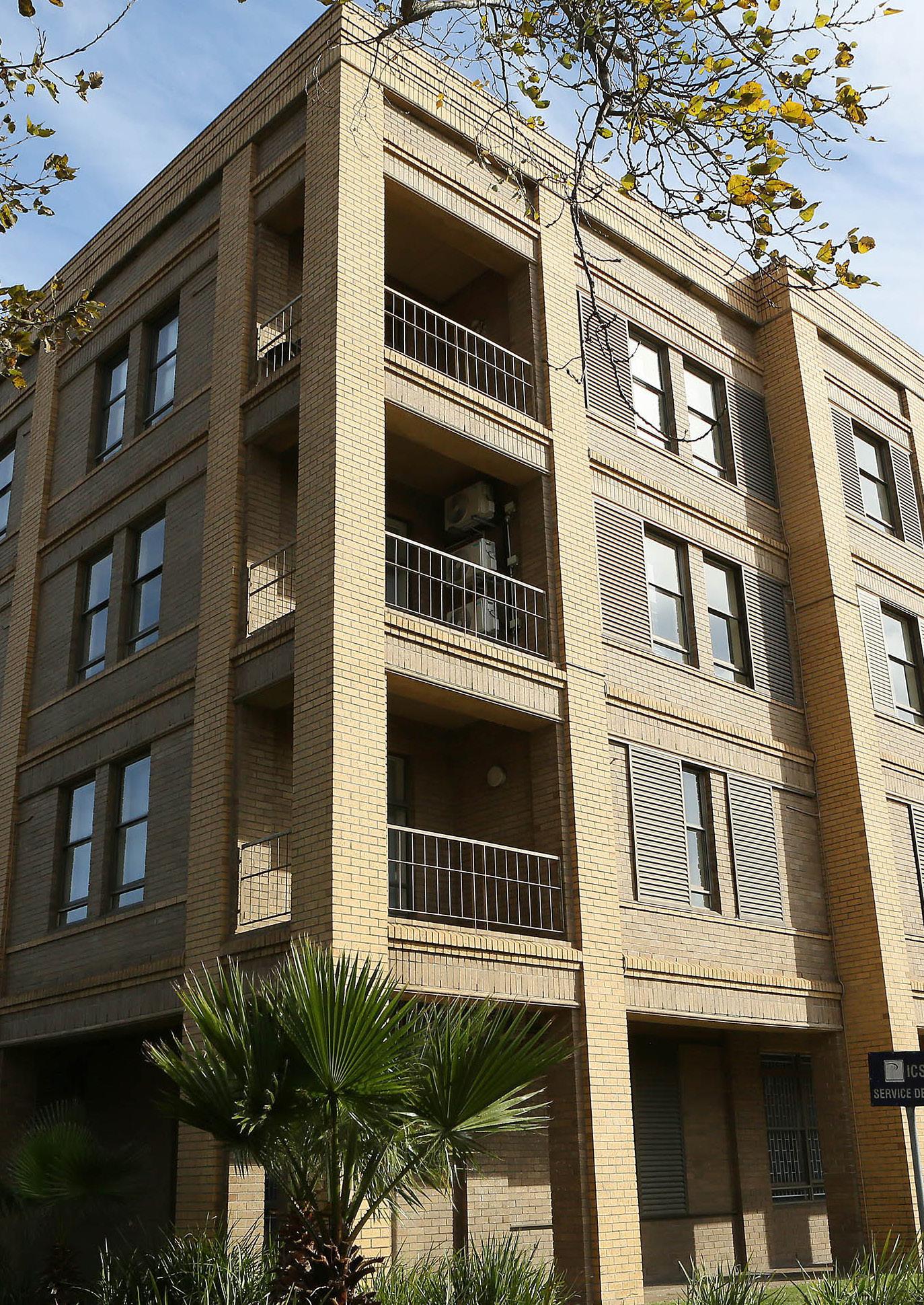
The Faculty of Community and Health Sciences encompasses a diverse range of professional disciplines, including Occupational Therapy, Dietetics and Nutrition, Nursing, Physiotherapy, Social Work, and Natural Medicine. These fields typically require a four-year undergraduate degree, after which graduates are eligible to enter their respective professions.
However, in disciplines such as Psychology, obtaining a postgraduate qualification (such as a master’s degree) is essential to becoming a fully accredited professional. This often raises an important argument: why invest time, money and personal resources in postgraduate studies in health sciences when a four-year undergraduate degree is sufficient for professional employment?
For the health sciences, the answer possibly lies in the work of the activist and scholar bell hooks, who emphasises that academia, despite its limitations, remains a space of possibility and hope. Within this field of possibility, we have the opportunity to labour for freedom, to challenge entrenched norms, and to demand of ourselves and each other that we acquire the critical consciousness needed to confront the harshness of reality with courage and advance the cause of social justice. Put simply, pursuing postgraduate studies in the health sciences is a “vocation rooted in hopefulness” – a belief that we can better ourselves, transform and elevate our communities, and address the structural inequalities that shape access to quality healthcare and health-related outcomes.
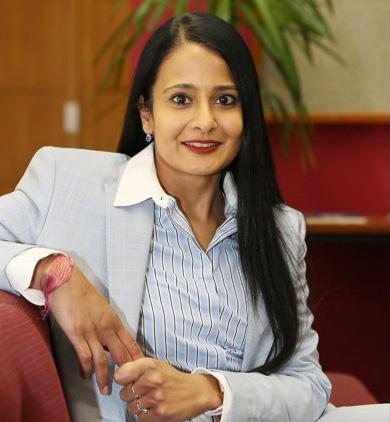
Is this possible with an undergraduate degree? Yes. But a postgraduate education sharpens our ability to critically engage in strengthening health systems, driving meaningful change, and expanding the boundaries of knowledge and practice in ways that go beyond the immediate demands of a professional qualification.
Professor Anita Padmanabhanunni
Dean of the Faculty of Community and Health Sciences (UWC)
“While our scholarship is internationally recognised, we remain deeply rooted in South Africa and the African continent.”
Postgraduate qualifications
PGDip (Midwifery)
PGDip (Public Health)
PGDip (Child and Family Studies)
PGDip (Sport for Development)
PGDip (Interprofessional Education in Health)
PGDip (Nursing Education)
Honours
BA Hons (Sport Recreation and Exercise Science)
BA Hons (Biokinetics)
BSc Hons (Biokinetics)
BA Hons (Psychology)
PhD
Streams
(PhD) Child and Family Studies
(PhD) Nursing
(PhD) Occupational Therapy
(PhD) Physiotherapy
(PhD) Psychology
(PhD) Public Health
(PhD) Social Work
(PhD) Sport, Recreation and Exercise Science
Master’s
MSc (Occupational Therapy) - thesis
MSc (Physiotherapy) - thesis
MPhil (Sport for Development)
MA (Sport Recreation and Exercise Science)
MA (Master of Arts in Psychology) - thesis
MA (Master of Arts in Psychology)structured
M (Master of Psychology)
M (Master of Social Work) - thesis
MA (Biokinetics)
MSc (Biokinetics)
MSc (Health Data Analytics)
MSc (Nutrition)
MPH (Nutrition)
M (Public Health)
MA (Child and Family Studies) - thesis
MNurs (Master of Nursing) – thesis
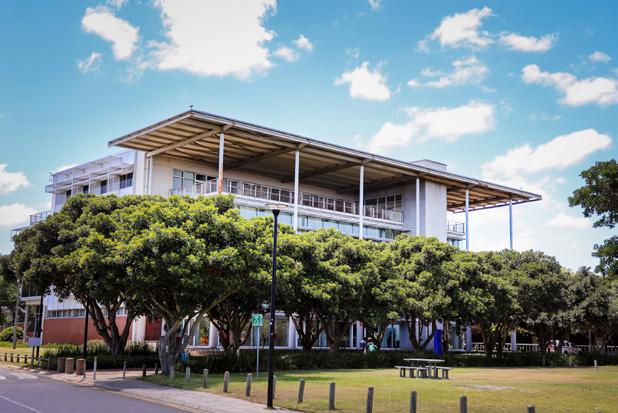
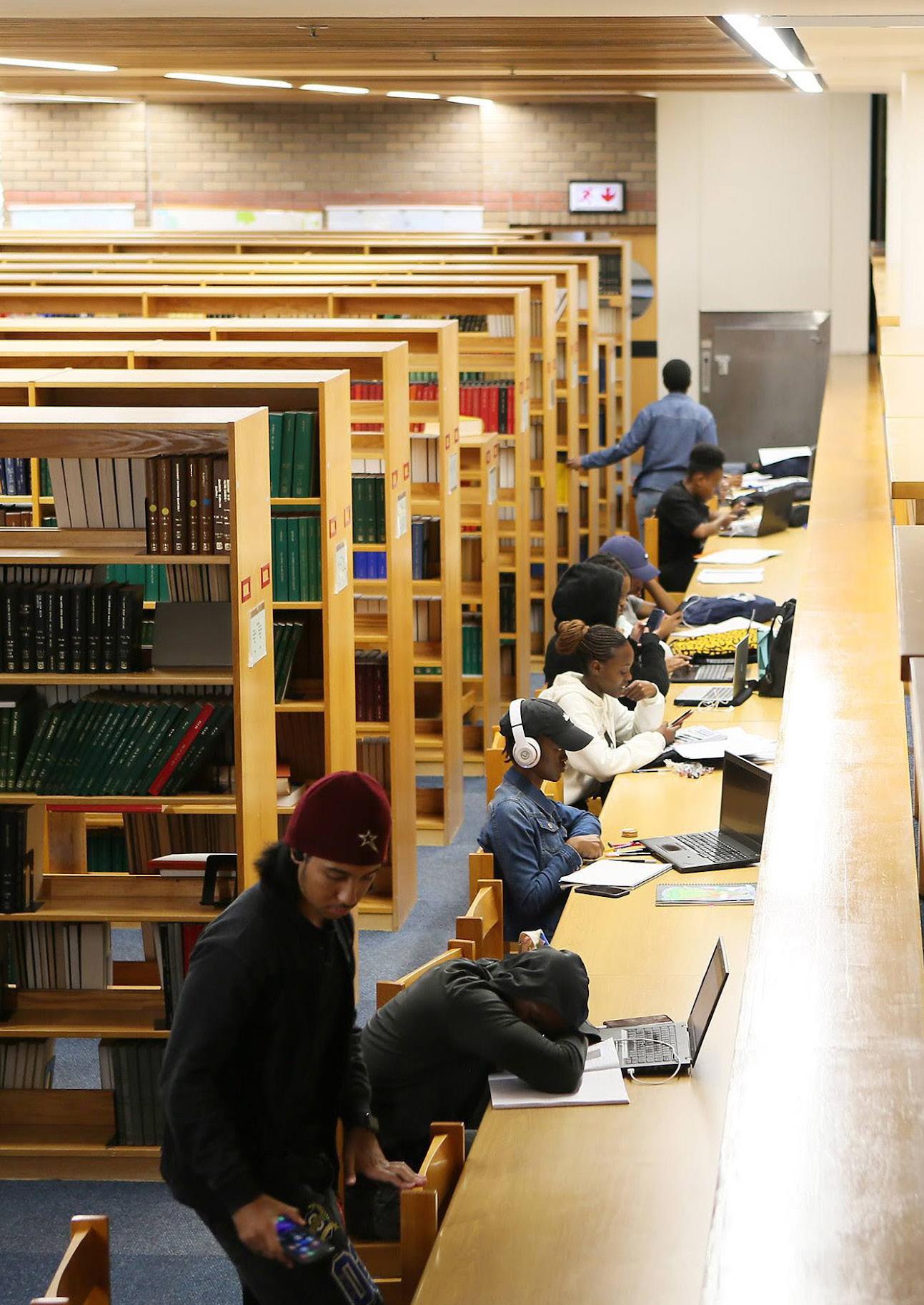
At UWC, you will be able to take your career in dentistry to the next level. Oral health is increasingly recognised as a vital component of overall health. The Faculty of Dentistry has various specialisations that offer students exceptional postgraduate study options in this field.
We bring you in-depth knowledge and advanced clinical skills in areas like orthodontics, oral medicine, periodontics, endodontics, community dentistry, oral pathology and maxillofacial and oral surgery. You will also become familiar with complex oral health issues. Postgraduate studies equip dentists with the latest techniques and tools to address oral health issues, for example in ditigal dentistry, implantology and minimally invasive techniques.
Research-based degrees like the Master of Science (MSc) or Doctor of Philosopy (PhD), emphasise the importance of research in advancing dental science. You can contribute to groundbreaking research on critical issues like oral cancer, periodontoal disease and the impact on systemic diseases on oral health. Work on the development of new treatments and ultimately improve global oral health outcomes.
Postgraduate study will create professional opportunities and bring professional recognition, opening doors to academic positions and leadership roles in healthcare institutions.
We welcome applications for our postgraduate programmes and look forward to joining you in making a meaningful impact on the lives of patients and the broader community!
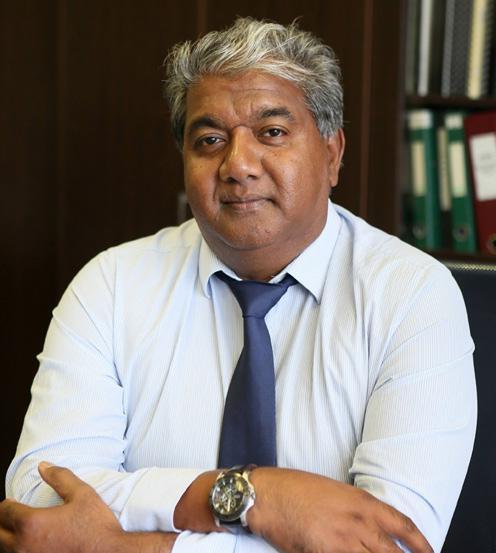
Professor Veerasamy Yengopal Dean of the Faculty of Dentistry (UWC)
“Postgraduate-trained dentists are indispensable in shaping the future of dentistry.”
Streams
PGDip (Dentistry)
PGDip (Aesthetic Dentistry)
PGDip (Endodontics)
PGDip (Forensic Odontology)
PGDip (Implantology)
MSc (Dentistry) - thesis
MSc (Dental Public Health) - thesis
MSc (Forensic Dentistry) - thesis
MSc (Maxillofacial and Oral Surgery)thesis
MSc (Maxillofacial Radiology) - thesis
MSc (Oral Medicine) - thesis
Streams
MSc (Dental Public Health) - clinical
MSc (Forensic Dentistry) - clinical
MSc (Maxillofacial Radiology) - clinical
MSc (Oral Medicine) - clinical
MSc (Oral Pathology) - clinical
MSc (Paediatric Dentistry) - clinical
MSc (Periodontology) - clinical
MSc (Restorative Dentistry) - clinical
MSc (Dentistry) - structured
PGDip (Interceptive Orthodontics)
PGDip (Maxillofacial Radiology)
PGDip (Minor Oral Surgery)
PGDip (Paediatric Dentistry)
MSc (Oral Pathology) - thesis
MSc (Orthodontics) - thesis
MSc (Paediatric Dentistry) - thesis
MSc (Periodontology) - thesis
MSc (Restorative Dentistry) - thesis
MSc (Dental Public Health) - structured
MSc (Forensic Dentistry) - structured
MSc (Maxillofacial Radiology) - structured
MSc (Oral Medicine) - structured
MSc (Oral Pathology) - structured
MSc (Paediatric Dentistry) - structured
MSc (Periodontology) - structured
MSc (Restorative Dentistry) – structured
Streams
MDS Master of Dental Surgery in Community Dentistry - clinical
MDS Master of Dental Surgery in Maxillofacial and Oral Surgery - clinical
MDS Master of Dental Surgery in Oral Medicine and Periodontics - clinical
MDS Master of Dental Surgery in Orthodontics - clinical
MDS Master of Dental Surgery in Oral Pathology - clinical
MDS Master of Dental Surgery in Prosthodontics - clinical
PhD
Streams
PhD (Dental Public Health)
PhD (Forensic Dentistry)
PhD (Maxillofacial Radiology)
PhD (Oral Medicine)
PhD (Oral Medicine and Periodontology)
PhD (Oral Pathology)
Streams
MDS in Community Dentistry - structured
MDS in Maxillofacial and Oral Surgerystructured
MDS in Oral Medicine and Periodonticsstructured
MDS in Orthodontics - structured
MDS in Oral Pathology - structured
MDS in Prosthodontics - structured
PhD (Paediatric Dentistry)
PhD (Periodontology)
PhD (Restorative Dentistry)
DDent (Doctor of Dentistry in Odontology)
The EMS Faculty’s mission is to “contribute to and influence the social, economic, political and technological development of society through teaching, learning and critical scholarship, in the fields of economic and management sciences, in a digital age.” We offer a wide range of postgraduate programmes to produce excellent and competent graduates to meet the skills needs of the South African labour market and to strengthen socio-economic development and growth of the economy.
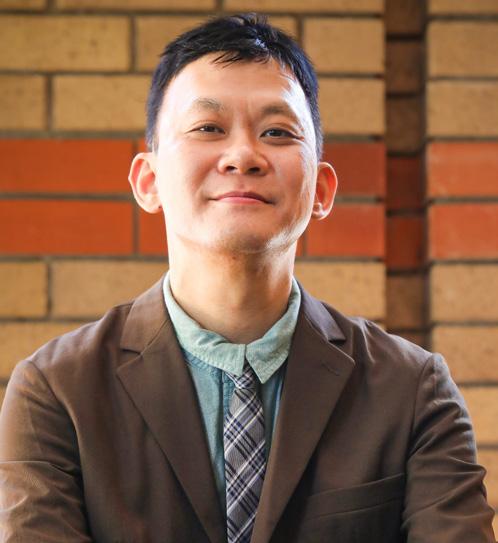
According to the Statistics South Africa’s Quarterly Labour Force Survey data, for those only with an undergraduate qualification, the unemployment rate has doubled from 8% in 2014 to 16% in 2024. As per the 2024 South African national List of Occupations in High Demand report, a lot of scarce skills occupations relate to specific EMS Faculty subject disciplines – ranging from chartered accountant, tax professional and financial manager, to business development officer, risk manager and researcher. For graduates with a postgraduate qualification, the unemployment rate has been quite stable and much lower at 4-6% range. Join us at the EMS Faculty and make an impact professionally!
Professor Derek Yu Acting Dean of the Faculty of Economic and Management Sciences (UWC)


Postgraduate qualifications
PGDip (Accounting)
PGDip (Land and Agrarian Studies)
PGDip (Finance)
PGDip (Business Administration)
PGDip (Computer Software and Media Application)
Honours
Streams – Full time or part time
BCom Hons (Bachelor of Commerce in Industrial Psychology)
BCom Hons (Bachelor of Commerce in Information Systems)
Streams – Full time or part time
BA Hons (Bachelor of Arts Honours in Political Studies)
B (Bachelor of Development Studies Honours)
BAdmin Hons (Bachelor of Administration Honours)
BCom Hons (Bachelor of Commerce Honours in Finance)
BCom Hons (Bachelor of Commerce Honours in Management)
BEcon Hons (Bachelor of Economics Honours)
“A lot of scarce skills occupations relate to specific EMS Faculty subject disciplines.”


MCom (Accounting) - thesis
MCom (Finance) - thesis
MCom (Information Systems) - thesis
MCom (Industrial Psychology) - thesis
MCom (Management) – thesis
MAdmin (Master of Administration) –thesis
M (Master of Development Studies) –structured/thesis
MCom (Master of Commerce in Management)
MPhil (Master of Philosophy in Land and Agrarian Studies)
MPA (Master of Public Administration)
MA (Master of Arts in Political Studies)
Streams
MA (Political Studies) – full thesis/ structured
Streams
MCom (Industrial Psychology) - structured
MEcon (Master of Economics) – thesis/ structured
PhD Streams
PhD (Accounting)
PhD (Development Studies)
PhD (Economics)
PhD (Information Systems)
PhD (Industrial Psychology)
PhD (Management)
PhD (Political Studies)
PhD (Public Administration)
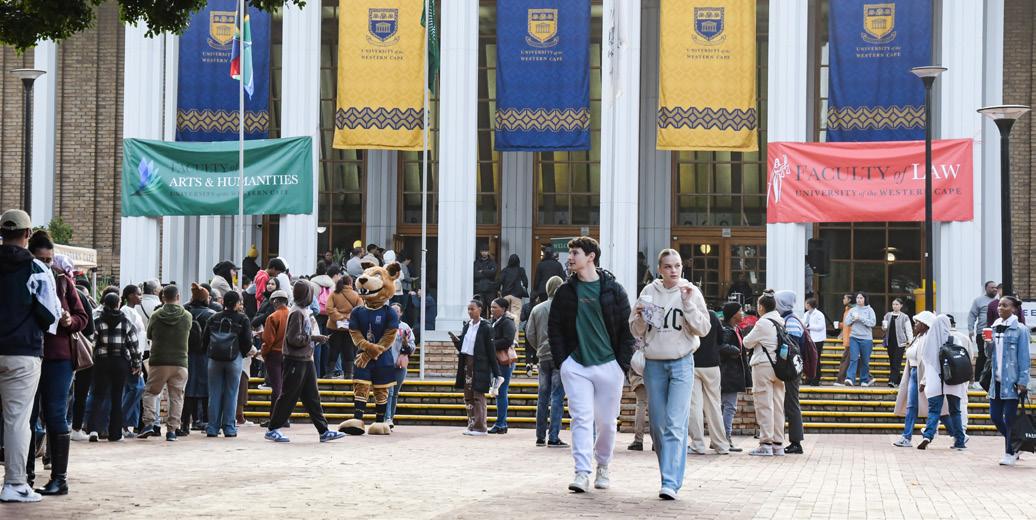
The University of the Western Cape (UWC) sets a high benchmark for the educators who shape and develop the young minds of South African children. It provides facilities and resources of the highest calibre, to ensure teachers have stimulating and vibrant learning spaces to prepare them to enter early childhood development centres as well as primary and high schools.
South African education faces many challenges, and this places a burden and tremendous responsibility on the country’s educators. At the same time, our country’s teachers need the skills and tools to develop the learners who will become our leaders, our workforce and the mainstay of our economy. They need to prepare learners for employment, the digital age and the explosion of new technologies and innovative fields of industry that are emerging globally.
UWC’s Faculty of Education responds to the demands facing South Africa’s education with programmes ranging from early childhood development to adult teaching. The faculty offers a range of world-class degrees and postgraduate training for a broad spectrum of educators. Learning and innovation are non-negotiable and form part of every module and offering. Our postgraduate programmes are designed to specifically develop students in an intellectual, professional and academic capacity.
Professor Rajendran Govender Dean of the Faculty of Education (UWC)
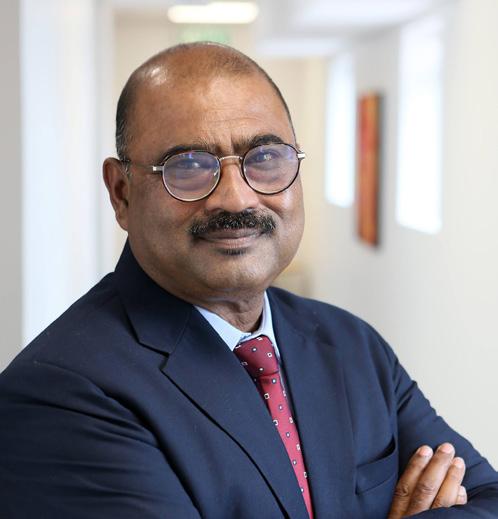
“SA teachers need more tools to help shape our country’s future leaders.”
Postgraduate qualifications
PGCE (Postgraduate Certificate in Education in Further Education and Training Teaching)
PGDip (Technical and Vocational Education and Training)
Honours Streams
BEd Hons (Educational Leadership)
BEd Hons( Educational Studies)
BEd Hons (Language and Literacy Studies)
BEd Hons (Mathematics Education)
BEd Hons (Science Education)
Master’s
Streams
MEd Hons (Curriculum Studies) - thesis
MEd Hons (Educational Studies) - thesis
MEd Hons (Language and Literacy Studies) - thesis
MEd Hons (Educational Leadership and Management) - thesis
MEd Hons (Mathematics Education)thesis
MEd Hons (Science Education) - thesis
MEd Hons (Educational Psychology) – thesis
MEd (Adult Education and Global Change)
PhD Streams
PhD (Adult Education)
PhD (Curriculum Studies)
PhD (Educational Leadership and Management)
PhD (Educational Psychology)
PhD (Educational Studies)
PhD (Higher Education Studies)
PhD (Language and Literacy Studies)
PhD (Mathematics Education)
PhD (Science Education)
PhD (Technical and Vocational Education and Training)

Facilities
Studying at the UWC Law Faculty offers postgraduate students a unique opportunity to advance their academic and professional careers in a supportive and intellectually stimulating environment.
Our master’s and doctoral programmes provide in-depth specialisation across various fields, including Constitutional Law, Labour Law, Criminal Justice, Environmental Law, Human Rights Law, Multi-level Government, and Mercantile Law. These programmes equip students with the knowledge and critical thinking skills needed to excel in their chosen careers. With access to experienced faculty members, cutting-edge research opportunities, and a strong academic community, our postgraduate programmes foster innovation and leadership, preparing graduates for influential roles in academia, the legal profession, industry, and public service.

In addition to our master’s and doctoral offerings, we provide specialised postgraduate diplomas in Public Law (local government), Labour Law, and Tax Law. These programmes are designed for professionals seeking to enhance their expertise in highly relevant legal areas. Our diploma programmes blend theoretical foundations with practical applications, allowing students to gain valuable insights and skills that can be immediately applied in their careers. We will also offer postgraduate diplomas in Fintech Law and Regulation, as well as in Environmental Law and Management from 2026.
What sets the UWC Law Faculty apart is our commitment to academic excellence, practical learning, and interdisciplinary collaboration. We provide a dynamic learning environment and a strong research culture that encourages innovation.
Professor Jacques de Ville Dean of the Faculty of Law (UWC)

PGDip (Postgraduate Diploma in Labour Law)
PGDip (Postgraduate Diploma in Public Law)
PGDip (Postgraduate Diploma in Tax Law (FT)
Streams
LLM (Master of Laws in Comparative Constitutional Law) - thesis/structured
LLM (Master of Laws in Comparative Labour Law) – thesis/structured
LLM (Master of Laws in Criminal Justice) – thesis/structured
LLM (Master of Laws in Environment Law) – thesis/structured
LLM (Master of Laws in Human Rights Protection) – thesis/structured
LLM (Master of Laws in Law, State and Multi-level Government) thesis/structured
LLM (Master of Laws in Mercantile Law) – thesis/structured
LLM (Master of Laws in International Trade, Investment and Business Law)
LLM (Master of Laws in Legal Pluralism and Family Law) – thesis/structured
PGDip (Fintech Law and Regulation)
PGDip (Environmental Law and Management)
Streams
MPhil (Comparative Constitutional Law) – thesis/structured
MPhil (Comparative Labour Law) – thesis/ structured
MPhil (Criminal Justice) – thesis/ structured
MPhil (Environment Law) – thesis/ structured
MPhil (Human Rights Protection) – thesis/ structured
MPhil (Law, State and Multi-level Government) – thesis/structured
MPhil (Mercantile Law) – thesis/structured
“Invest in a future of intellectual growth, professional success, and meaningful impact in your field.”
PhD
Streams
PhD (Doctor of Philosophy in Comparative Constitutional Law)
PhD (Doctor of Philosophy in Criminal Justice)
PhD (Doctor of Philosophy in Environment Law)
PhD (Doctor of Philosophy in International Human Rights Protection)
PhD (Doctor of Philosophy in Comparative Labour Law)
PhD (Doctor of Philosophy in Mercantile Law)
PhD (Doctor of Philosophy in Law, State and Multi-level Government)
Streams
LLD (Doctor of Laws in Comparative Constitutional Law)
LLD (Doctor of Laws in Criminal Justice)
LLD (Doctor of Laws in Environment Law)
LLD (Doctor of Laws in International Human Rights Protection)
LLD (Doctor of Laws in Comparative Labour Law)
LLD (Doctor of Laws in Mercantile Law)
LLD (Doctor of Laws in Law, State and Multi-level Government)

During postgraduate studies at the Faculty of Natural Sciences, the learning emphasis shifts to developing deeper and more specialised skills that set you apart from the crowd. You start to generate knowledge – not just learn it from others.
First comes the honours, then the MSc, or master’s – where you spend two years working in a research-focused environment and graduate with a thesis demonstrating being at the forefront of current developments in your field.
The PhD or Doctor of Philosophy in Science is a research degree where you contribute new knowledge to the scientific community, showing that you are ready to embark on a research career. To succeed in all these levels of postgraduate study you need three things – a personal commitment to science, excellent facilities and knowledgeable, researchactive advisors. If you bring the commitment, the Faculty of Natural Sciences at the University of the Western Cape will provide the rest.
We have excellent, world-class facilities. Perhaps you have seen the large science buildings on our campus? Most of that space is dedicated to creating research. Our staff are highly qualified, dedicated and most importantly active in their research. Becoming a postgraduate student in our faculty is about becoming part of the creation of science and equipping yourself to be a future leader in the knowledge economy.
Professor David Holgate Dean of the Faculty of Natural Sciences (UWC)
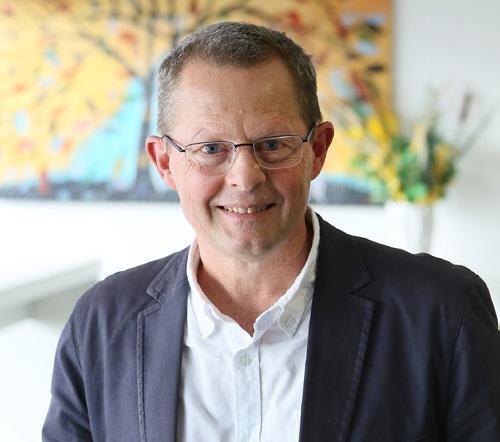
“If you want to really grow and differentiate your scientific skillset, then a postgraduate degree is for you.”
Postgraduate qualifications
PGDip (Integrated Water Resource Management)
Honours
BSc Hons (Biotechnology)
BSc Hons (Applied Geology)
BSc Hons (Physical Science)
BSc Hons (Medical Bioscience)
“Becoming a postgraduate student in our faculty is about becoming part of the creation of science and equipping yourself to be a future leader in the knowledge economy.”
BSc Hons (Biodiversity and Conservation Biology)
BSc Hons (Chemistry)
BSc Hons (Computer Science)
BSc Hons (Mathematics)
BSc Hons (Statistical Science)
BSc Hons (Population Studies)
BSc Hons (Environmental and Water Science)


MSc (Physical Science)
MSc (Environment and Water Science)
MSc (Nanoscience)
MSc (Pharmaceutical Sciences)
MSc (Biotechnology)
MSc (Medical Bioscience)
MSc (Chemical Sciences)
MSc (Biodiversity and Conservation Biology)
MSc (Statistical Science)
MSc (Computer Science)
MSc (Mathematical Science)
MPharm (Master of Pharmacy)
MClinical Pharmacy (Master of Clinical Pharmacy)
MSc (Pharmacy Administration and Policy Regulation)
MSc (Applied Geology)
MSc (Bioinformatics)
MPhil (Population Studies)
PhD (Doctor of Philosophy) Streams
PhD (Applied Geology)
PhD (Biodiversity and Conservation Biology)
PhD (Bioinformatics)
PhD (Biotechnology)
PhD (Chemistry)
PhD (Computer Science)
PhD (Environmental Science)
PhD (Mathematics)
PhD (Mathematics Education)
PhD (Medical Bioscience)
PhD (Population Studies)
PhD (Pharmaceutical Sciences)
PhD (Physics)
PhD (Statistics)
DPharm (Doctor of Pharmacy)
Welcome to the University of the Western Cape (UWC), where knowledge meets opportunity, and academic excellence shapes the future. As you embark on your postgraduate journey, you are joining a dynamic and diverse community dedicated to research, innovation, and societal impact.
UWC stands as a beacon of transformation, committed to equipping graduates with advanced skills, critical thinking abilities, and a deep understanding of their disciplines. Whether you are pursuing a postgraduate diploma, honours, master’s, or doctoral studies, you will find an environment that fosters inquiry, creativity, and collaboration.
Postgraduate study is an important step in your academic and professional growth. At UWC, you will engage with expert faculty members, access world-class research, facilities, and contribute to groundbreaking discoveries that address local and global challenges. Student success is a key institutional strategic focus driven from the perspective of providing coherence, support and enabling intellectual space, and in the context of postgraduate studies, your appetite for new knowledge and imparting and supporting undergraduate students through various initiatives and interventions form part of a caring institutional culture.
This guide is designed to help you navigate the postgraduate experience at UWC, offering insights into available programmes, research opportunities, financial aid, and campus resources. We encourage you to embrace this exciting phase of your academic journey with enthusiasm and determination. We look forward to welcoming you to UWC and supporting you in achieving your academic and professional aspirations.
Professor Matete Madiba Deputy Vice-Chancellor: Student Development and Support (UWC)
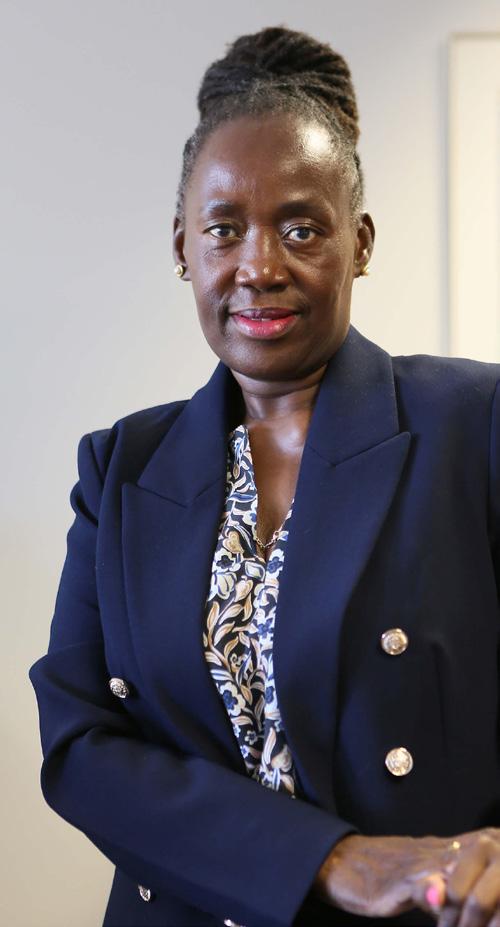
“At UWC, we believe in the power of collaboration, creativity, and critical thinking to drive positive change.”
Library postgraduate support: In support of the IOP Goal 3, the library offers postgraduate research support services throughout the research life cycle.
Access to literature resources: The library provides access to academic literature through multiple online databases. Students have access to online resources via our discovery platform, uKwazi, and the databases. When off-campus, authentication through EzProxy sign-in credentials grants students remote access. The library offers in-person and online reference and guidance on the optimal use of these resources.
Research support training and workshops: The library provides workshops, training, and information sessions to groups and one-on-one consultations. The sessions cover various aspects of the research lifecycle including navigating the library’s website, the use of electronic databases, citation and reference management software, systematic literature review tools, research data management, publishing and researcher profiles.
Thesis submission portal: Graduating master’s and doctoral students are required to submit their thesis or dissertation as part of the graduation workflow to the Thesis Submission Portal
Publication support: The Publishing Support Service assists researchers with finding journals for publication through journal evaluation, using various tools and methods. Assistance is also provided to avoid predatory journals and conferences. For more information consult the Guide to Open Access Publishing and the Guide to Selecting a Journal
Research data management: Research data management (RDM) is the process of collecting, organising, storing, sharing and preserving research data throughout the lifecycle of a research project. Data Management Plans (DMPs) are required as part of a research proposal. To find out more consult the Guide to Research Data Management
Inter-library loans: Inter Library loans (ILL) allow UWC students & staff to borrow books, journal articles and other materials not available in the UWC Library collection, from other libraries. The ILL Request form is available through the library’s website.
Reciprocal agreements: Registered senior postgraduate students (excluding short-course and honours students) and staff can use these reciprocal borrowing privileges. Users will require a referral letter from the UWC Library.
Postgraduate study and workspace: The Research Commons on Level 13 of the library is a dedicated workspace for the exclusive use of master’s and doctoral students. It provides access to computer workstations, study space, and discussion rooms. In collaboration with the Research Development and Postgraduate Support (RDPS) office, the library provides a meeting space for the Writing Coaches programme.
Borrowing privileges: Senior postgraduate students can borrow a maximum of 20 library items for a period of 4 weeks.
For more information, please consult the Library Research Portal and the UWC Library web page or mail enquiries to library-research@uwc.ac.za
UWC has decided to go WYSA on mental health and introduce a 24/7 AI mental health chatbot service to UWC staff and students. The interactive platform includes:
• 24/7 conversation AI chat-based support for all your wellbeing concerns like anxiety, exam stress, relationships, motivation, and more
• Personalised journeys to help you build emotional resilience and practise positive thinking and mindfulness
• 150+ proven tools and techniques backed by research to help you take control of your mental health
• Completely anonymous and confidential conversations so you can be open about anything on your mind without judgement
• Mood & anxiety assessments to better understand your challenges
WYSA offers an incredibly engaging experience that makes taking care of your mental health feel empowering. Proven to improve depression and anxiety scores by an average of 31%, Wysa’s AI-first approach enables people to improve their mental health before symptoms become severe, by understanding an individual’s needs and guiding them through interactive cognitive behavioural therapy (CBT) exercises. It combines clinically validated techniques with an empathetic, understanding approach to meet you where you’re at.
https://widget.wysa.io/wrapper/uwc/ For further information contact wysa@uwc.ac.za
The University of the Western Cape (UWC) offers a dynamic and supportive environment for postgraduate students. Whether you’re pursuing honours, master’s, or doctoral studies, UWC provides resources, academic support, and social opportunities to enrich your experience.
There are various social and professional opportunities for postgraduate students, such as:
• Postgraduate Student Council (PGSC): A platform for postgrad students to engage in academic and social events
• Research seminars & conferences: Regular events allow students to present work, network, and gain insights from experts
• Academic writing support: The Postgraduate Writing Retreat helps students refine their thesis and research skills
• Graduate internship programmes: UWC connects postgrads with internships, research assistantships, and industry placements
• UWC Career Services: Guidance, CV workshops, and job placement assistance
• International collaboration: Opportunities for exchange programmes and partnerships with global universities
Other facilities available for students include access to UWC’s sports complex, gym, swimming pool, and various sports clubs.
There is also the Student Wellness Centre. Here, students have access to counselling, mental health support, and medical assistance for postgrad students.
“Your mental health is important to us – we look out for our postgrads.”
• A dedicated division within the Centre for Student Support Services (CSSS) at the University of the Western Cape (UWC), committed to promoting the mental health and overall wellbeing of students. We provide individual counselling, a 24/7 toll-free helpline, group therapy and workshops and seminars
• We optimise a student’s potential for academic success and holistic development, to facilitate their employability and engagement as global citizens. We provide an innovative Learning and Development environment for postgraduate students, focusing on quality student-driven practices, through individual academic coaching and customised research skills workshops. There are also individual academic coaching sessions; research skills workshops and a student leadership academy
• On offer are also leadership development programmes, and the two flagship programmes are: the Emerging Leaders Programme (ELP) and the Advanced Leaders Programme (ALP)
• Ubuntu Peace Program (UPP): A transformative student empowerment initiative designed to cultivate socially conscious, emotionally intelligent, and academically grounded individuals. Our postgraduate students emerge as mindful scholars and changemakers. Ultimately, UPP supports the formation of a new generation of leaders. These individuals are as competent in boardrooms and research spaces as they are compassionate in communities. These graduates don’t just excel academically; they carry forward the values of ubuntu into every sphere they enter
• Personal Mastery and Empowerment (PME) Course: A transformative 4-day, 32-hour journey designed to equip participants with the tools to unlock their personal power and envision the life they most desire. UWC is proud to be the only university in the world offering this unique course to its students tailored to resonate with our local and global realities. PME nurtures a new generation of graduates who are empowered to transform themselves and the world around them
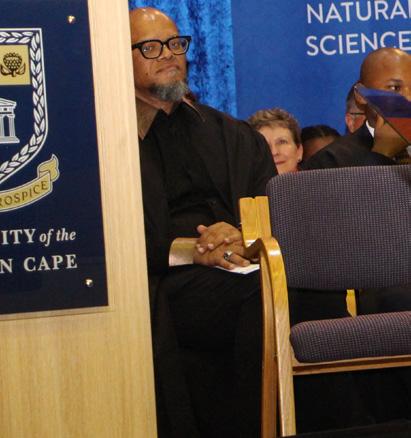
The Office for Students with Disabilities advocates for full accessibility and inclusion for students with disabilities within the UWC community. Disability refers to anyone with a physical or mental impairment - long term or substantially limiting.
Disability accommodations:
Alternative text format of academic material such as braille, enlarged text and electronically accessible text
Disability specific additional time concessions for test and exams
• Psychosocial support services + reduced distraction venue for test and exams
• Disability specific assistive devices + screen reading and magnification software + possibility to audiorecord in class lectures
How to register with our office: email us at oswd@uwc.ac.za
Temporary disability assistance + computer lab with technology software
Loan of assistive devices when available
• Assistance with disability accommodation recommendations to residence
Assistance with bursary application and assistive device recommendations
• Referral to on-campus and off-campus support resources
We assist disabled students in every possible way
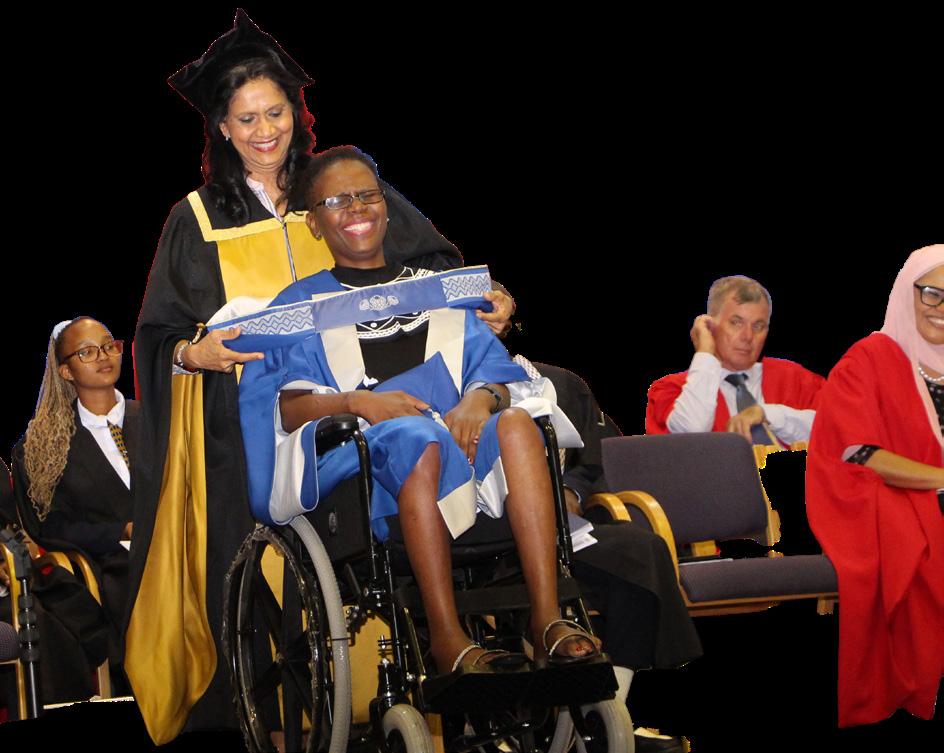

UWC offers:
• Arts & culture: Engage in poetry readings, theatre performances, and cultural festivals
• Clubs & societies: Join interest-based clubs such as debate, photography, and student activism groups
• Weekend getaways: Bellville’s nature reserves, wine routes, and Cape Town’s scenic spots offer great weekend escapes


“So much to do in and around UWC!”


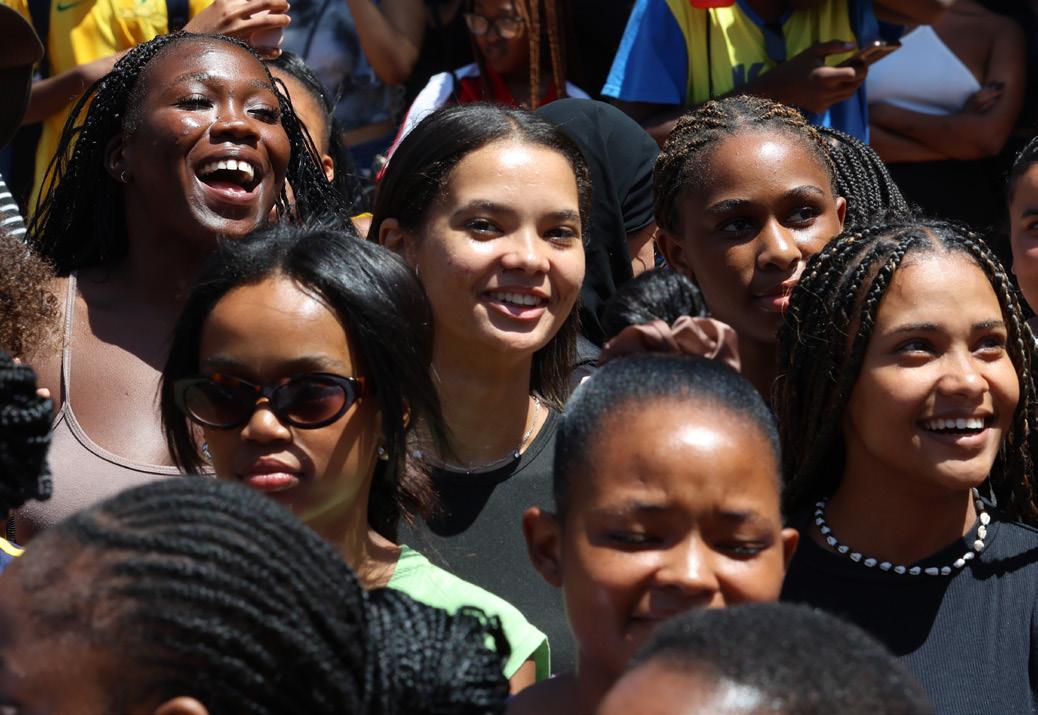

Completing in minimum time (completing a degree within the expected timeframe) is important for postgraduate students due to several academic, professional, and personal reasons:
• Academic success: Staying on track reflects effective time management and academic discipline. You also avoid academic penalties as delays may result in extra tuition fees, re-enrolment charges, or academic probation
• Career advancement: Completing on time allows students to enter the job market sooner, boosting career progression
• Competitive edge: Timely completion signals reliability and dedication to potential employers and professional networks
• Financial benefits: Delays can increase financial burdens due to additional tuition, living expenses, and loan interest
• Funding compliance: Many scholarships and funding programmes have completion deadlines, making timely graduation essential to maintain financial aid

• Publication deadlines: Meeting programme timelines ensures timely research publications, enhancing academic credibility
• Grant obligations: Research grants may be tied to specific completion timelines
• Personal development and goals: On-time completion helps students pursue personal goals such as starting a family, relocating, or pursuing additional degrees
• Reduced stress: Delayed completion can increase stress and anxiety related to academic and career uncertainties
• Institutional reputation: Graduation rates impact a university’s global ranking and attractiveness to prospective students
• Alumni success: On-time graduates contribute to a university’s alumni success stories, enhancing its prestige
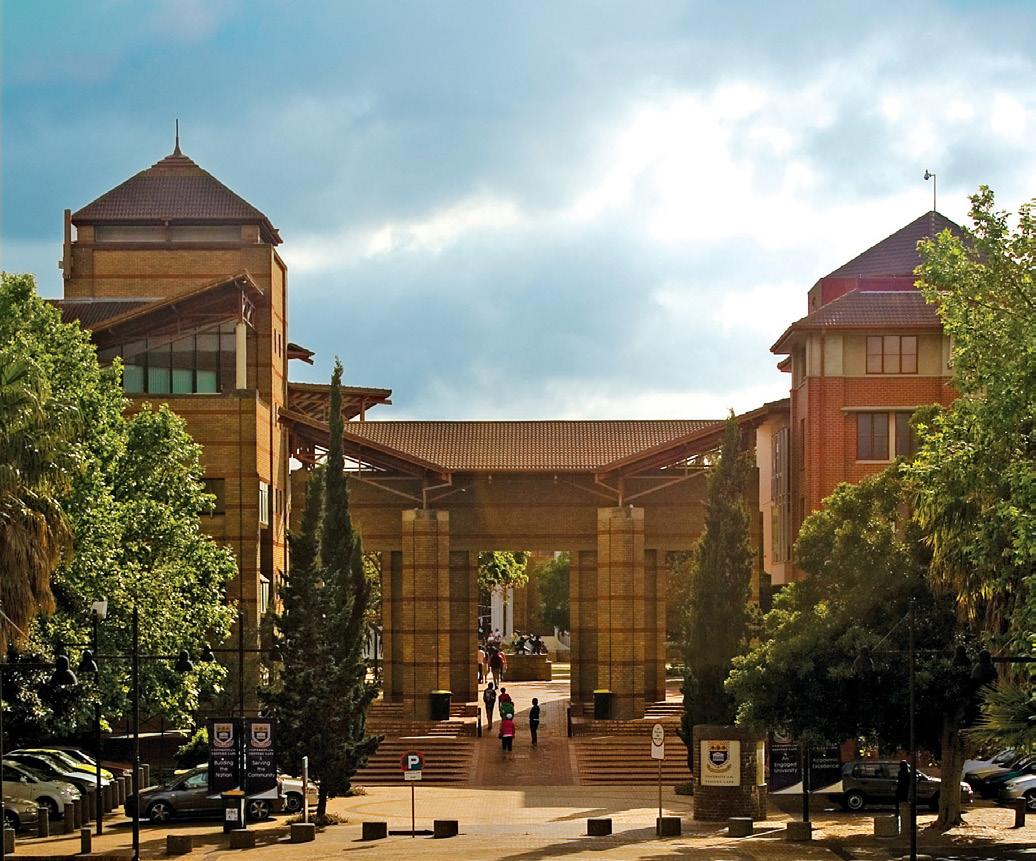
The DPGS provides an inclusive, multicultural and holistic researcher development environment in creating a “one-stop shop” for postgraduate students that will serve as a first port of call. Central to this approach is a focus on strengthening the university’s research niche areas as important domains for postgraduate education.
Visit www.uwc.ac.za/study/postgraduates for more information.
UWC has created a user-friendly website with all student-related information. Use it to check closing dates and news. Check your student email account regularly as it is our primary mode of communication with students. iKamva is your friend as all relevant information about your modules will be listed here: https://ikamva.uwc.ac.za/portal
The minimum period of study for a master’s degree of 180 credits is one year, and a doctorate of 360 credits is two years. The maximum amount of time for the master’s degree depends on the course – but usually, for a non-professional master’s degree is three years. For a professional master’s degree, the maximum period of study ranges from two years to five years, depending on the degree.
The period of study for a doctoral degree is five years. A student registered for a doctoral degree must have been registered for at least two academic years before the thesis may be submitted for examination.
The title of your thesis for master’s and doctoral studies needs to be formally registered. Your supervisor also needs to be formally registered. Your supervisor will advise you about this process which takes place in the first year for fullthesis degrees and in the second year for structured degrees.

Postgraduate students need to register their thesis title. This means in your first year, you need to register your full-thesis degree and in your second year, your structured degree.
Upon application for admission to a research programme in a specific department, you must submit a brief concept proposal (about two pages) with:
1 3 2
For some structured master’s programmes, a concept proposal may not be required since admission is determined by your grade
To submit you have six months for a fulltime student, one year for a part-time student
4
Once a student has been formally registered, they must prepare the research proposal in consultation with the supervisor for approval by the Faculty Higher Degrees Committee (FHDC)
Students enrolled for a coursework master’s are advised to prepare their proposals during the first year of study to submit it via a supervisor in their second year of study. A Memorandum of Understanding (MOU) should be agreed upon between the student and supervisor. The MOU sets out the expectations and obligations on both sides and contributes to a good working relationship.
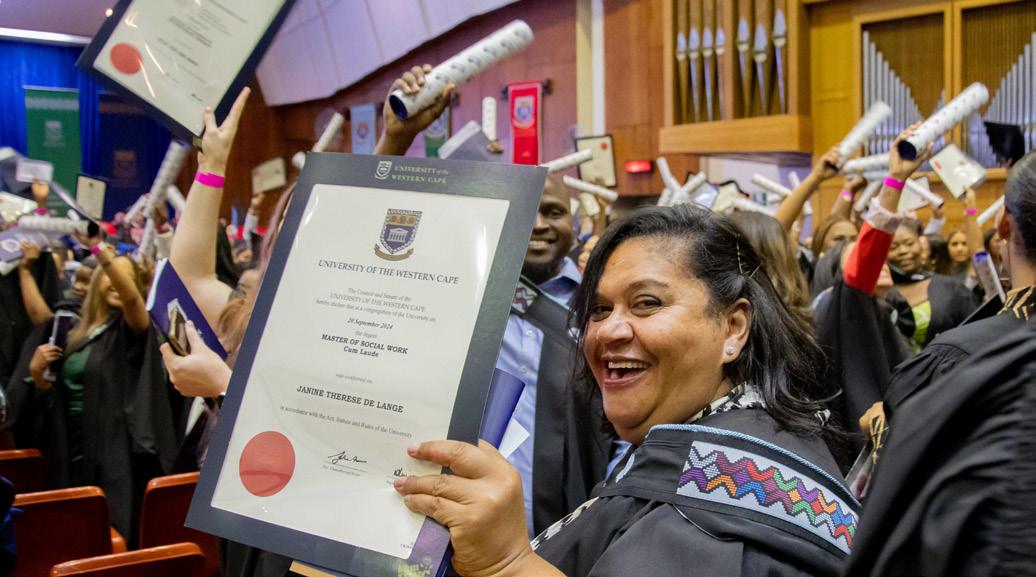
Promotion to subsequent years of study may be blocked if you do not have a proposal approved or do not obtain ethics clearance by the required deadline.
A good relationship between students and supervisors is important to ensure postgraduate studies go smoothly.
Supervisors monitor and guide student progress and ensure that the immediate research environment is safe, healthy, and free from harassment, discrimination and conflict and that students are safe when doing fieldwork. They also report any differences in expectations to the Departmental Research Committee and give regular, timeous and comprehensive written feedback to the students on work submitted.
Students must keep their supervisor(s) regularly informed on progress and keep to project timelines. They also need to confirm that they understand the expectations and guidelines laid down by the department, faculty and university, especially regarding ethics, research conduct, plagiarism, intellectual property and safety.

The primary function of the Financial Aid Office is to award and manage bursaries and bursary loans according to agreed criteria. The mandate of the Financial Aid Office is aligned to the following institutional principles regarding financial support to students:
The Financial Aid Office strives to balance responsible stewardship of all financial aid funds with the creation of a student-centred culture. We are working to establish ourselves as a leader in financial aid services when measured against peer institutions, using technology to streamline financial aid processes and constantly looking forward to meeting challenges resulting from changes in funding rules. We seek to model campus-wide communication and collaboration while respecting the needs, values, and diversity of our students, parents, and colleagues. For more information email us on finaid@uwc.ac.za
Established in 2006, this Program is a global initiative designed to develop the next generation of transformative leaders by enabling highly talented, service-orientated young people, primarily young Africans, to pursue higher education and cultivate their leadership potential. The Program is specifically targeted towards young people who face the highest economic and social barriers to opportunity.
The Mastercard Foundation Scholars Program at UWC provides full comprehensive scholarships for 250 undergraduate Mastercard Foundation Scholars (over four years each) and 250 master’s degree Mastercard Foundation Scholars (over two years each) over a seven-year grant cycle. There is specialised support and scholars receive housing, laptops, monthly allowances, and medical aid. See https://mastercardfdn.org/ for more info and application details.
“UWC can help you with managing your financial aid.”
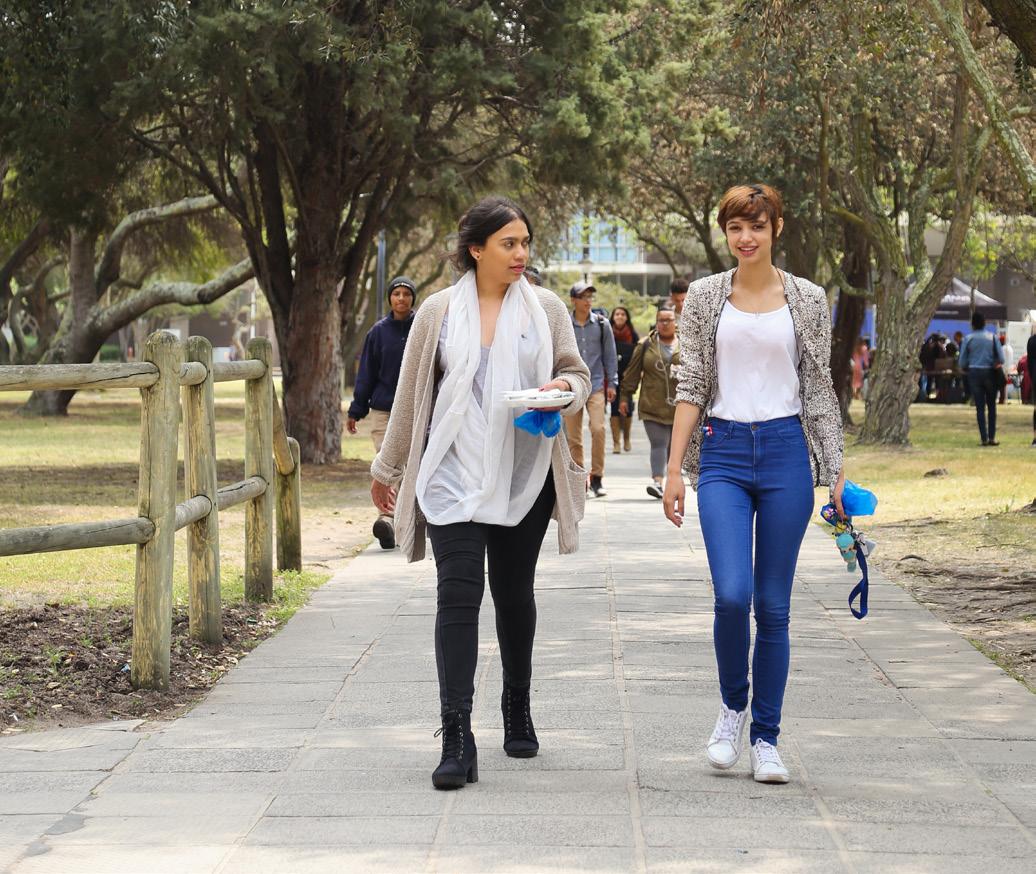

The University of the Western Cape (UWC) offers several accommodation options for postgraduate students.
On/Off-campus residences: UWC provides on-campus housing specifically for postgraduate students. These residences offer convenient access to campus facilities and foster a community environment conducive to academic success. A newly renovated postgraduate lounge for residence students is available at Reslife Building on campus. For detailed information on available residences, application procedures, and deadlines, please visit UWC’s official Residential Services accommodation page at uwc.ac.za
Application process: Residence applications are conducted exclusively online via the Residential Services Management System (SMS). Students can log in using their South African ID number, UWC student number, passport number, or application number. A step-by-step application guide is available to assist applicants.
Kovacs Student Village: Located on UWC’s main campus, Kovacs Student Village offers modernised accommodation options for students. Benefits include proximity to campus amenities, reducing travel time and costs, and a supportive environment managed by an efficient support staff. Applications can be completed online through the Kovacs Student Village website: kovacsuwc.co.za
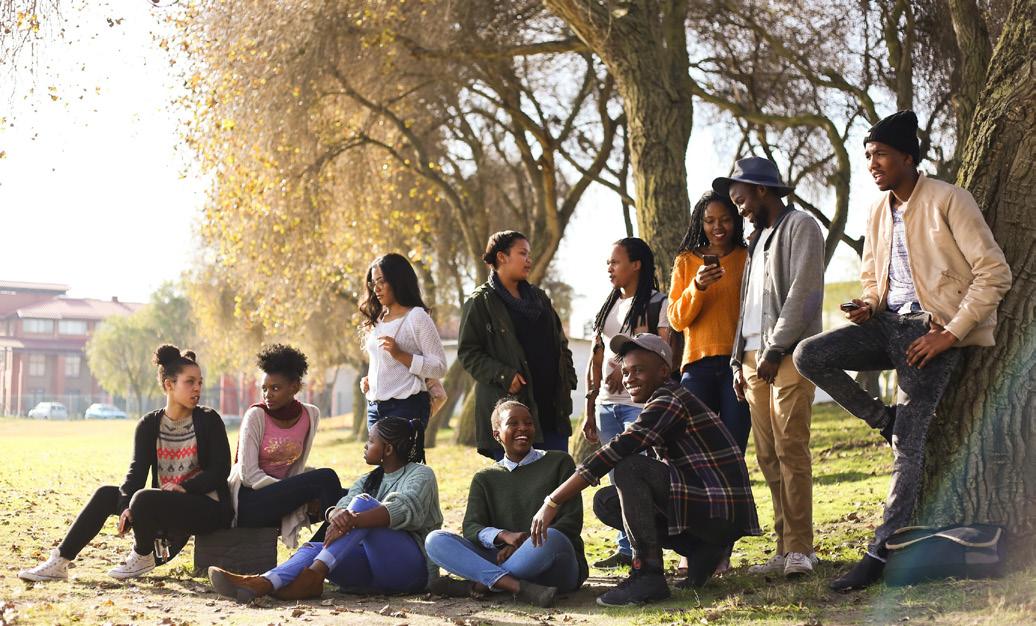
Postgraduate students have extensive access to a range of services like the career portal Xplora – available 24/7.
You can also find job search help such as the CV, Letter of Motivation Toolkit and LinkedIn resources. Book a consultation or submit your documents for review. Browse the Opportunities Board for graduate roles, internships, research opportunities, bursaries and full-time opportunities. Or subscribe to the weekly discipline-specific job blasts. We also have recruiter videos and recorded workshops. Browse the employer directory or use the Try a Mock Interview Tool – super helpful!
Career Xpos are offered twice a year and give students:
• The opportunity to meet recruiters and successful alumni face-to-face
Explore career options and connect with companies
• The Graduate Recruitment Project (GRP) also facilitates employer showcases and information sessions throughout the year, giving you direct access to recruiter expectations and opportunities
• Employability bootcamps offer real-world insights, practical strategies and networking opportunities

SCAN THE QC CODE connect with Career Services!
At the University of the Western Cape (UWC), each faculty has designated postgraduate administrative officers to assist students with their academic and administrative needs. Below are the contact details for each faculty:
Faculty of Arts and Humanities Postgraduate enquiries: artspostgrad@uwc.ac.za
Faculty of Community and Health SciencesGeneral enquiries: chshelpdesk@uwc.ac.za
Faculty of Dentistry Postgraduate administrative: dentistry@uwc.ac.za
Faculty of Economic & Management Sciences Postgraduate enquiries: ems-pg@uwc.ac.za
Faculty of EducationHonours enquiries: eduhonours@uwc.ac.za
Faculty of LawPostgraduate enquiries: lawpostgradenq@uwc.ac.za
Faculty of Natural Science Postgraduate enquiries: science-postgrad@uwc.ac.za
For Postgrad enquiries: Postgrad@uwc.ac.za


Cultural & educational hub: UWC is a historic institution with a rich anti-apartheid history. You can explore the campus and learn about South Africa’s educational transformation. Bellville Library is one of the oldest libraries in Cape Town, with historical archives and a peaceful atmosphere
Scenic & outdoor attractions: Tygerberg Nature Reserve is just a short drive away, offering hiking trails and panoramic views of Cape Town. Majik Forest is a hidden gem for nature lovers, perfect for walking, jogging, or cycling.
Shopping & local markets: Tyger Valley Shopping Centre is one of the biggest malls in Cape Town, with a mix of high-end and local stores. Willowbridge Slow Market is ideal for fresh produce, handmade crafts, and delicious food.
Food & drink scene: D’Aria Wine Estate: A beautiful wine farm offering wine tasting and scenic picnic spots. Boston Coffee is a local favourite for coffee lovers.
Durbanville Wine Route is a short drive away, offering world-class wine tasting experiences.
Entertainment & nightlife: GrandWest Casino & Entertainment World: Gaming, restaurants, an ice rink, and live shows and performances. Barnyard Theatre offers live music and performances for a fun night out.
Proximity to Cape Town’s major attractions: Bellville is a gateway to both the Cape Winelands (Stellenbosch, Paarl, Franschhoek) and central Cape Town, making it an ideal base for exploring.
• Visit Tygerberg Nature Reserve for hiking and birdwatching
Enjoy wine tasting at Durbanville Hills or D’Aria Wine Estate
• Shop at Tyger Valley Centre and Willowbridge Market Experience live music and entertainment at Barnyard Theatre
Take a short drive to Cape Town’s beaches, Table Mountain, and the V&A Waterfront.
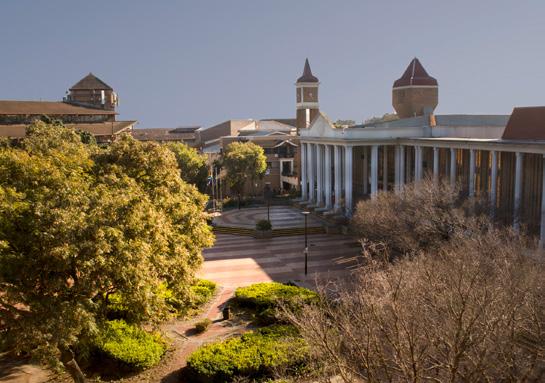
Shop, hike, party or go wine tasting!
www.uwc.ac.za
Facebook: @uwconline1
Twitter: @uwconline
LinkedIn: The University of the Western Cape
Instagram: @uwconline
TikTok: @uwconline
Threads: @uwconline
Bluesky: @uwconline.bsky.social